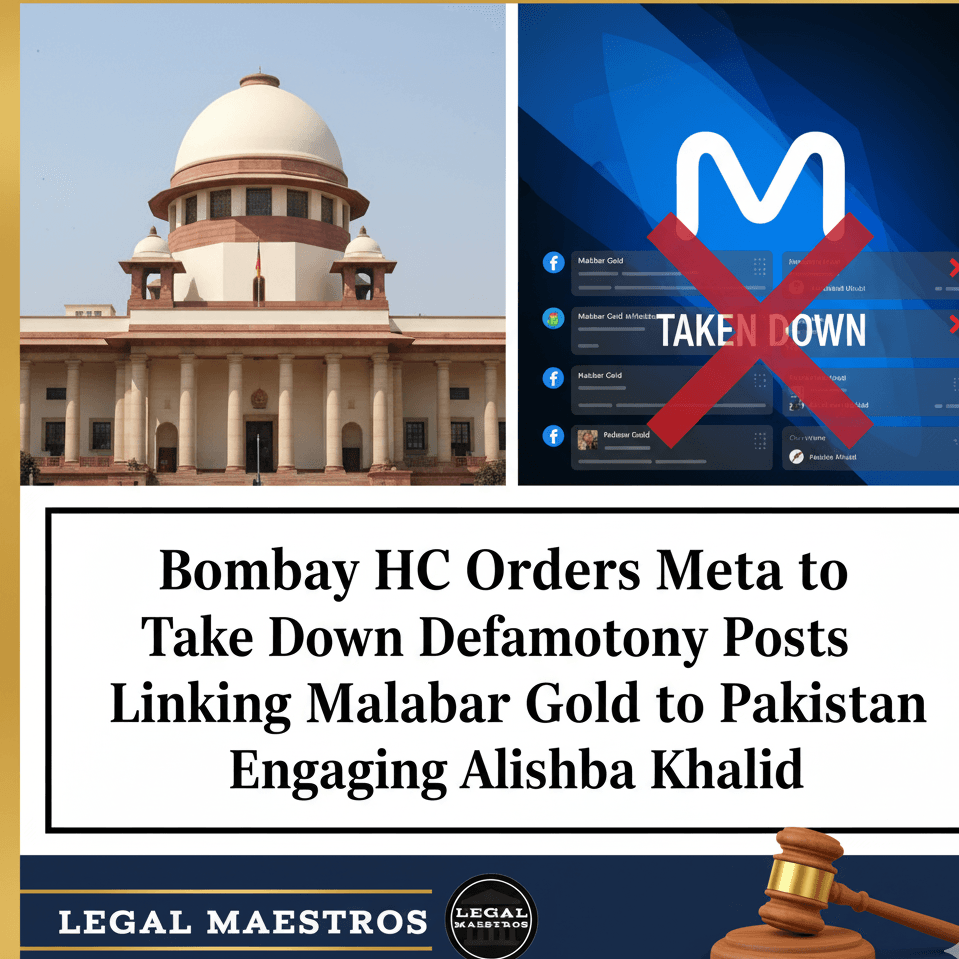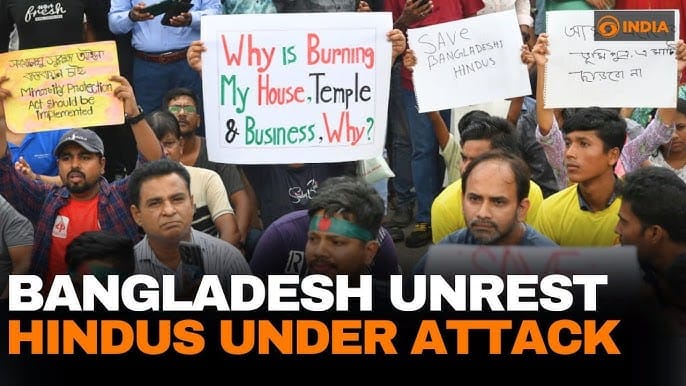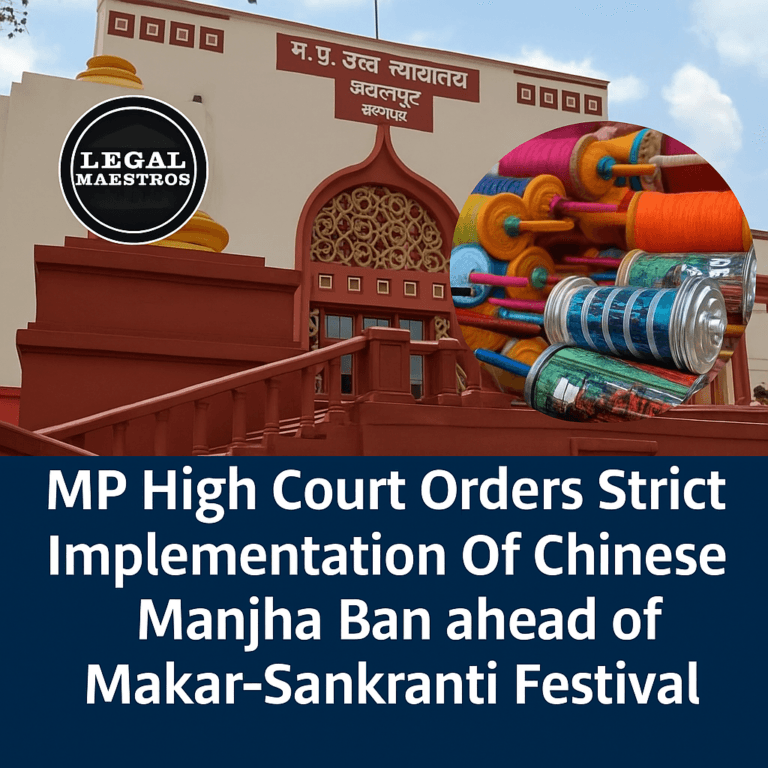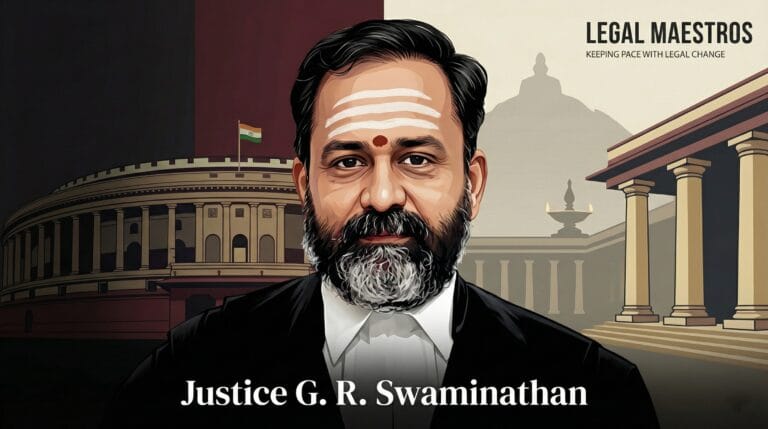
Bombay HC Orders Meta to Take Down Defamatory Posts Linking Malabar Gold to Pakistan Engaging Alishba Khalid
Anatomy of the Malicious Smear Campaign
The allegations of the online smear campaign against Malabar Gold consisted of the misleading social media posts. These were posts using a video or photos of Alishba Khalid, a famous Pakistani influencer, and attempting to falsely say the Indian jewelry brand had contracted her to promote Pakistan Independence Day. This story was developed to make the company seem like it was anti-India or pro Pakistan.
The situation on the ground was completely on the contrary. With a huge international customer base, especially in the Middle East, Malabar Gold frequently partners with influencers of different nationalities to serve its multinational customers. The video with Alishba Khalid was included in one of the promotional campaigns there and had nothing to do with the national day of Pakistan or politics. The posts used such material out of context to form an untrue and harmful story.
The architects of this campaign were clever enough to select a sensitive topic namely the India-Pakistan relationship to cause as much harm as possible. The contemporary socio-political environment allows any perceived connection with Pakistan to cause an outrage and boycotts of a brand in India. The patriotism effort was a calculated move to weaponize the public sentiment against a well established Indian Company.
For any queries or to publish an article or post or advertisement on our platform, do call at +91 6377460764 or email us at contact@legalmaestros.com.
The rate and magnitude with which this fake news propagated on social media platforms such as Facebook and Instagram revealed the strength of the social media in enhancing falsehoods. Every share and comment posted to the story, which made a serious negative impact on the reputation of Malabar Gold and has led to a PR crisis due to an entirely false story. This demanded that the company act with speed and with force.
Malabar Gold’s Swift Legal Recourse
Having realized the sheer and urgent risk of the viral misinformation, Malabar Gold opted not to restrict its reaction to social clarifications. Rather, the company made the bold move of going to the Bombay High Court to seek an urgency injunction to prevent the transmission of the libelous material. This court action marked the intent of the company to combat the vicious campaign in a court of law.
In the petition to the court, Malabar Gold would have claimed that the concerned posts were not only false, but also malicious in their motive. The firm must have provided evidence that the content was inflicting irreparable damage to its brand equity that has been built over decades of the trust between it and the Indian consumers. They would have pointed out that the campaign was a calculated move to slander the company and to damage the businesses of the company.
The legal goal was mainly to obtain a takedown order of the social media sites where the content was located. The company stated that the decision to keep the posts online would cost the company further money and reputation in the future. The timing of the issue was critical, the more the false information spread the harder it would be to rebuild the image in the minds of people.
Malabar Gold filed the case in court thereby establishing strong precedence to other companies experiencing the same online challenges. The action was a proactive measure to fight defamation on the Internet, where the legal system is used to hold platforms responsible and ensure their brand is not stolen by the bad guys. It was an indication of a rising trend of businesses who did not want to be silent victims of online trolling and misinformation.
The Court’s Order and Platform Accountability
The Bombay High Court that considered the evidence presented by Malabar Gold, concluded that the posts fell under the category of prima facie (at first glance) defamatory posts. The court concluded that the content was harming the company in practice, and placed an interim order, instructing Meta to take down the indicated posts and URLs on its sites. This was a relief to the grieved company at the time.
This finding is an important declaration of the legal doctrine that the right to the freedom of speech does not apply to the propagation of intentional falsehoods to defame a person or organization. The court put more weight on the safeguarding of reputation as opposed to the abuse of social media. A takedown is a normal legal action in instances where material posted online has been discovered to be unlawful, dishonest or malicious.
The decision also gives a special focus on the role and responsibility of social media intermediaries. Although sites such as Facebook and Instagram have safe harbour clauses that protect the information left by third parties, this is not a guarantee of full protection. Their responsibility to respond to a court order and remove the content as a legal obligation further provides them with responsibility in the legal system.
This Bombay High Court ruling has a good precedent. It gives a strong signal to the social media giants that they need to have proper and functional mechanisms that can respond to complaints regarding defamatory content. It gives hope to other victims of online slander campaigns, demonstrating to them that the courts are ready to act and defend the reputation in the cyber world.






